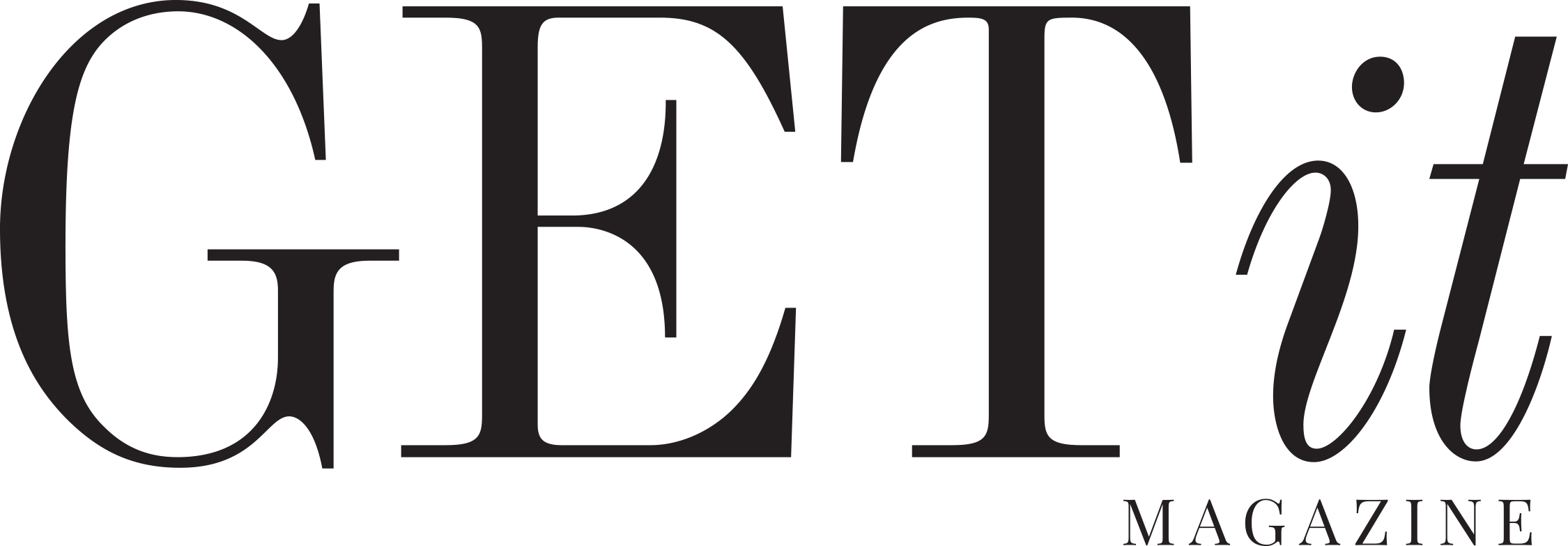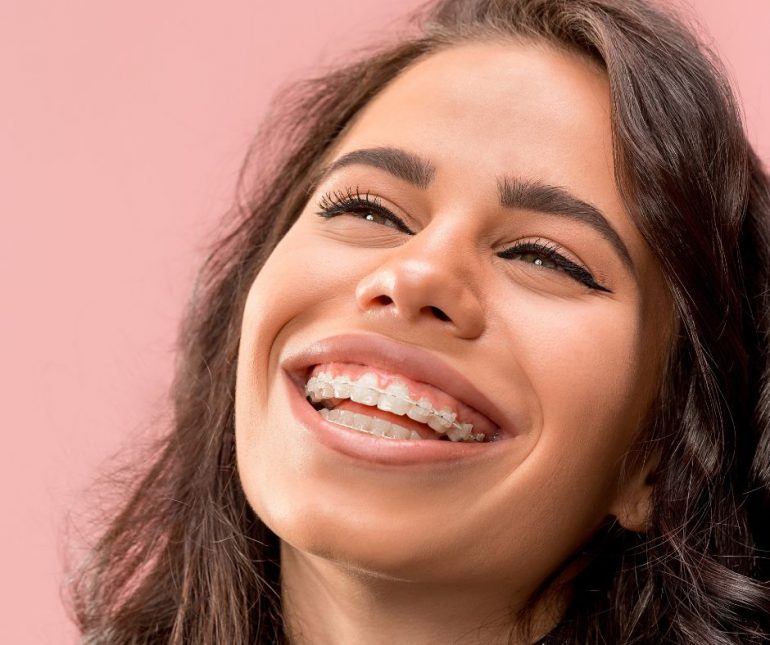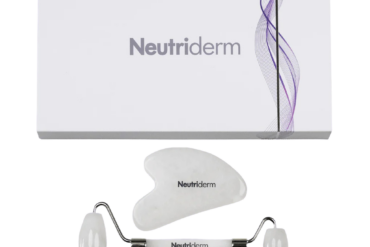Dr Daniel De Angelis at Transform Dental Care has been a Specialist Orthodontist in Adelaide for over 20 years, treating over 10,000 patients. Dr De Angelis shares what you need to know when it comes to braces.
What are braces?
Dental braces are wire-based orthodontic devices that align and straighten teeth. While most people get braces in their teens, adult braces are just as effective, they may just require a little more time to move the teeth.
Dr De Angelis offers two kinds of braces – metal and ceramic.
Metal braces
Metal braces are one of the most common orthodontic treatments, mostly due to their cost-effectiveness and reliability. They are also extremely effective in straightening smiles and correcting poor bites.
Braces consist of stainless steel brackets and thing wire bands that hold help gently move the teeth.
Ceramic braces
Just like metal braces, ceramic braces are made from wire. They function in the same way and are very effective. But instead of stainless steel and coloured bands, ceramic braces consist of tooth-coloured porcelain material and clear brackets. This makes ceramic braces almost invisible and a popular choice with adults and teenagers concerned about the appearance of metal braces.
Do braces hurt?
Everybody experiences braces differently. There may be some discomfort as your mouth adjusts to the new pressure on your teeth. You may also feel your new braces rubbing against your inner cheek. This should all disappear in a few days.
What can I eat?
Following orthodontic appointments or adjustments, your braces may leave you feeling tender. Try eating soft food like soup, bananas or pasta.
Once you feel more comfortable, you can introduce more foods into your diet. With braces, you can eat:
• Dairy products such as soft cheese and milk-based drinks
• Bread
• Grains like pasta and soft cooked rice
• Meats and poultry
• Seafood, including tuna, salmon and crab cakes
• Cooked vegetables
• Fruit
• The occasional treat such as ice cream (without nuts), milkshakes, jelly and soft cakes.
Dr De Angelis recommends limiting hard and crunchy foods like apples, carrots, or crunchy bread. You should completely avoid:
• Chewy foods like liquorice or bagels
• Crunchy snacks such as popcorn and chips
• Foods that are sticky – chewing gum or lollies, for example.
• Anything hard like nuts or hard lollies
• Foods that require biting into, such as corn on the cob.

How do I clean my braces?
It’s always important to maintain good oral hygiene, particularly when you have braces. Braces make it easier for pieces of food and plaque to get trapped in the brackets of your braces.
Use a toothbrush with a soft head to reach those tricky areas. Hold your brush at a 45-degree angle, and gently brush your entire gum line. Then turn your toothbrush at a downward angle on the top of your brackets, and then at an upward angle to clean the bottom of your brackets.
Whenever possible, brush your teeth after every meal. If brushing isn’t an option, then rinsing your mouth with water or mouthwash will help remove plaque and food build up until you can brush your teeth.
Flossing is essential. If flossing tape is too tricky, use floss threaders or interdental brushes. These will manoeuvre around your brackets more easily. You can find both these products at your local supermarket or pharmacy.
What happens if something goes wrong with my braces?
It’s not usual to sometimes break a wire or bracket during your braces treatment. But don’t worry – there’s no need to panic!
Damaged braces can cause discomfort, cuts and abrasions inside the mouth. If left unfixed, it can make your treatment less effective.
While you wait for your appointment, you can cover any broken wires with wax so it won’t cause any more discomfort. You can also tuck it under the archwire with a blunt object – like a pencil eraser or the end of a match stick.
Will my health insurance cover braces?
Many health insurers will contribute to orthodontic treatment, including braces, as part of their ‘extras’ cover. Extras cover, or general treatment, is a component of health insurance that covers services that usually Medicare does not.
It’s important to understand that even though some dentists offer orthodontic treatment, it may not be covered within the Major Dental component of your health insurance because the treatment has not been prescribed by a Specialist Orthodontist. Some health funds may pay a lower benefit or not pay a benefit at all if you see a dentist for orthodontic treatment.
How much your health insurance fund will cover for the orthodontic treatment comes down to your level of cover, and your health fund. It’s best to check with your health fund to see exactly how much you can claim. If you have extras cover under your health insurance cover you should expect to be able to claim a portion of the cost of your treatment.





